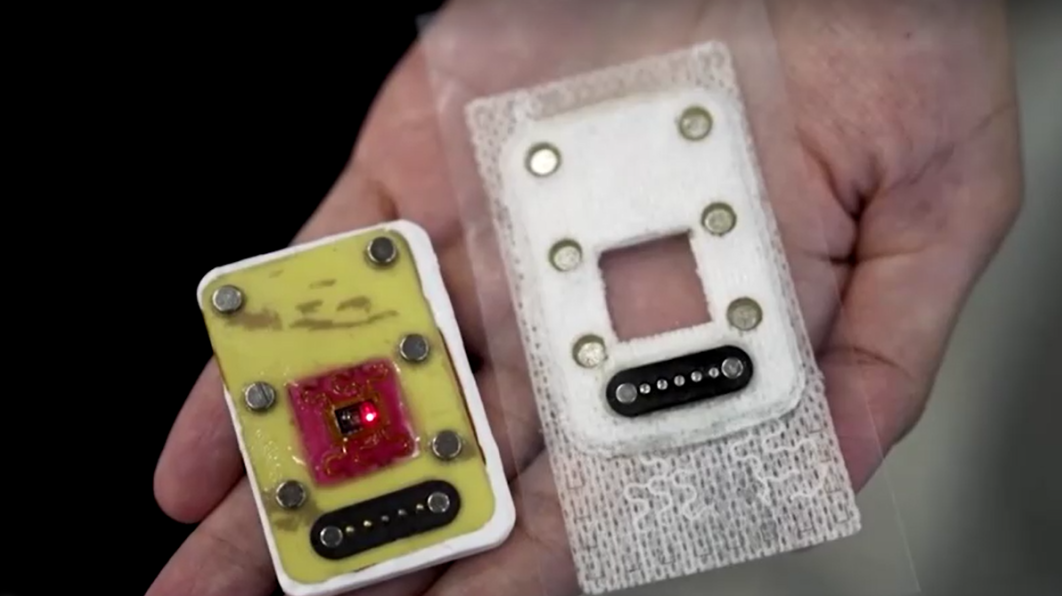Israel orders Lebanese to leave swathe of the south 'immediately'
Israel has warned residents to leave a significant area in southern Lebanon, instructing them to move north of the Li...

A scientist in the US revealed the pioneering device which works alongside artificial intelligence to monitor the body's vital signs and alert in case of danger.
A scientist in Atlanta has created a pioneering equipment aimed at protecting outdoor workers and reducing heat related deaths.
Roxanna Chicas, PhD, a nurse at Emory University in Atlanta, Georgia is leading groundbreaking effort to protect farmers, construction workers and others from the rising threat of heat-related illnesses.
Chicas draws from her personal experience as a Salvadoran immigrant whose family worked in construction and agriculture.
“Farm workers are 35 times more likely to have a heat-related death followed by construction workers who are 13 times. And so these are the two sectors that have the highest heat-related mortality," Chicas told Reuters.
In collaboration with Georgia Tech, Chicas and researchers have developed a small wearable biopatch device that attaches to a worker’s chest and monitors vital signs like skin temperature, heart rate, and respiratory rate.
The project was developed with input from farmworker communities, who helped shape the research. So far, the biopatch has been tested on 168 farmworkers, who have responded positively to the idea of using technology to protect their health on the job.
"Eventually what our computer science team is going to do is use that data to train AI so that we are able to recognize someone who is heading into the danger zone before they collapse from heat stress. And send them an alert in real time to let them know it's time to take a break, to hydrate, to cool down," Chicas said.
According to Chicas, the device could be available in the market within a year or two with affordability being prioritized to ensure it is accessible to workers who need it most.
Data from the U.S Environmental Protection Agency shows that approximately two thousand people die each year in the United States from heat related illnesses including heatstroke.
This makes heat the leading cause of weather-related fatalities in the country.
U.S. President Donald Trump said the U.S. military has enough stockpiled weapons to fight wars "forever"; in a social media post late on Monday. The remarks came hours before conflict in Iran and the Middle East entered its fourth day.
U.S. first lady, Melania Trump chaired a UN Security Council meeting on children and education in conflict on Monday (2 March), a move criticised by Iran as hypocritical following U.S. and Israeli strikes that triggered a UN warning about risks to children.
A torpedo from a U.S. submarine sunk an Iranian warship off the coast of Sri Lanka, U.S. Secretary of Defense, Pete Hegseth told reporters as the Iranian conflcit entered its fifth day on Wednesday.
The U.S. embassy in Riyadh was hit by two drones resulting in a limited fire and some material damage, the kingdom's defence ministry said in a post on X on Tuesday, citing an initial assessment.
Shahid Motahari Sub-Speciality Hospital in northern Tehran and parts of the Golestan Palace were bombed on day two of the U.S.‑Israel strikes. AnewZ Touraj Shiralilou is in Iran's capital city and said that the facility was flattened in an airstrike.
Measles cases across Europe and Central Asia fell sharply in 2025 compared to the previous year but health officials have warned that the risk of fresh outbreaks remains unless vaccination gaps are urgently addressed.
A Florida university has become a new hotspot in a widening U.S. measles outbreak, with health officials confirming multiple infections and hospitalisations.
The World Health Organization has added the Nipah virus to its list of the world’s top 10 priority diseases, alongside COVID-19 and the Zika virus, warning that its epidemic potential highlights the global risk posed by fast-spreading outbreaks.
Belgian authorities are examining suspected cases of infants falling ill after consuming recalled Nestle baby formula, amid warnings that confirmed infections may be underestimated due to limited testing requirements.
Two Nipah infections involving health workers in India have triggered heightened screening across Southeast Asia as authorities move to prevent the high fatality virus from spreading beyond the country.
You can download the AnewZ application from Play Store and the App Store.

What is your opinion on this topic?
Leave the first comment